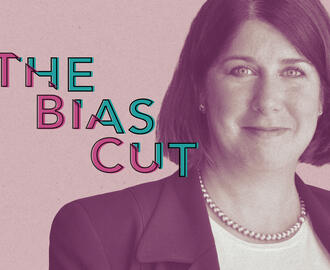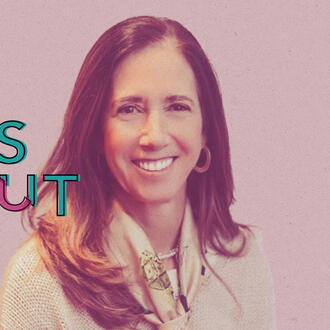Credit: Laura Wentzel
How this entrepreneur uses her peer allies to get around gender bias
By
A 2023 women’s leadership study from LeanIn.org and McKinsey & Co. found that American women held 40% of corporate management positions, and women continue to fight underrepresentation when it comes to board positions and CEO roles. They also face gender bias, harassment, and opposition to their management styles.
Here’s how one MIT Sloan alumna has pushed back on those statistics and used what she’s learned along the way to help those behind her.
Kerry Twibell, MBA ’07, partner at go-to-market firm The AQ. Previously, Twibell was an executive vice president at MediaLink and a senior director of business development at Hearst.
Given what you know now, what would you tell your younger self about being a woman in your industry?
I’ve wasted too many minutes in an internal dialogue questioning if what I had to say would add value. Now I realize that what might be obvious to me might not be obvious to others. Trust in what you know. Always take a seat at the table, and always speak up; share your thoughts, perspectives, and point of view.
Can you give an example of a time you’ve experienced or witnessed gender bias? How did it affect you professionally? What impact did it have on your job?
Gender bias is a complicated and pervasive issue. It’s often nuanced and may present as who is heard in a meeting, who is called on for thoughts and perspectives, and even who is promoted and how quickly. It can be discouraging, and it may feel hard to find motivation when these obstacles present themselves. I’ve found it helpful to look for peer allies who can act as champions supporting my ideas, lending credibility, and advocating for me.
What is the most difficult lesson you’ve learned in your professional life? In what unexpected ways did you grow from it?
There have been a few situations in my career where I have given something my all and it still was not enough: A project was canceled or someone else got the promotion. Sometimes working hard is not enough for success to immediately follow. Nothing is a sure thing, but a setback won’t end your career. Flexibility and resilience are two traits that will never fail you, because even the best-laid plans are subject to the whims of the market. A sense of humor always helps too.
What’s one specific way you tend to your well-being, and how do you encourage well-being among your staff?
If I don’t meditate first thing in the morning before my family wakes up, it doesn’t happen! Afterward, I feel centered and my decision-making is clearer. Taking walks, usually listening to a podcast, has a similar effect and provides perspective. Sometimes I’ll squeeze in a call or two while walking, which makes me feel more connected to others and contributes to my well-being.
To encourage team well-being in my previous roles, I really tried to know them as whole people; we all have interests, demands, and challenges outside of work. Having that insight about my teams made me more effective in removing obstacles and providing additional support when needed.
Now, as an entrepreneur, I no longer have a team to manage. I check in each morning with my partner, Allison Mezzafonte. We’re committed to supporting each other’s well-being. With small kids at home, sometimes that includes just finding some solo quiet time to recharge.
What’s one skill or behavior women can adopt to make their career path more successful and more manageable?
Act like your own boss. Regardless of who you work for or where you sit in an organization, you’re in control of your own career: Manage it like a product. This includes marketing yourself and your accomplishments. It’s not uncommon for women to work hard and hope that it will be noticed. That’s not the case. Everyone is busy, so make it easy for someone to understand what you do, why you’re the best at it, and why that matters to them. You are your work product, and you are the driver of your journey.
And don’t be afraid to ask for help. It does not make you look weak or incapable, but rather proactive and solution-oriented.
If you could snap your fingers and change one thing about workplaces, societal norms, or public policies that would most benefit women in the workforce, what would it be?
Support for child care. The pandemic laid bare the major cracks in our child care system. The patchwork system of early childhood education in the U.S. is largely run by women, many of whom are not being paid commensurate with their impact. Many child care workers do not receive paid time off, and only 15% receive health care benefits from their employers.
I became a mother just before the pandemic began, and it was a trying time with a young baby and no support. I now lead the PTO at my daughter’s nursery and have found camaraderie with other female executives who work to support our teachers. As they say, it takes a village.



